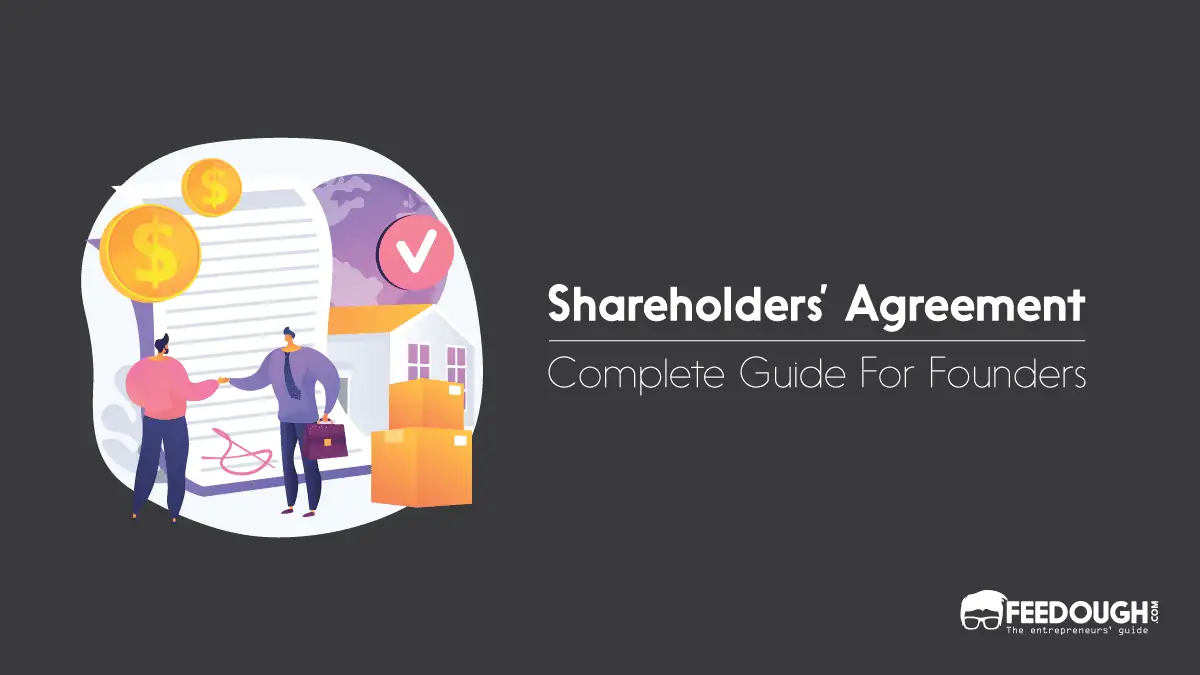Entrepreneurship may be a calling for many of us who would love to jump into the world of entrepreneurship without any training and then learn and mature in entrepreneurship with years.
However, in a world where more and more people opt to become entrepreneurs, entrepreneurship is no more a ‘calling’ where you can rely on your instincts to succeed.
You must have that extra edge to beat the competition or stand out in a flooded market.
So how do you get that edge?
10+ years back, when I started my first venture, I vividly remember – multi-tasking and working around the clock to meet the demands of running a business.
With no mentorship or formal studies to support my endeavor, I struggled.
However, things today are different.
Unlike earlier times, when entrepreneurship was never a subject in colleges – today, there is no dearth of options for colleges where you can pursue a degree in entrepreneurship.
As per a list published on the prestigious Saint Louis University, more than 200 colleges and universities offer a degree in entrepreneurship.
Now before I address the question – is a degree in entrepreneurship worth it? How about we discuss the advantages and disadvantages of an entrepreneurship degree.
Advantages And Disadvantages Of Entrepreneurship Degree
The most significant advantage of joining an entrepreneurship course in a formal university setting is that it helps you learn from the professionals who can teach you various aspects of entrepreneurship – including but not limited to marketing, finance, psychology and leadership.
As you compete for VC funding, an entrepreneurship degree may add an edge to your case or argument for why you should get funded.
Also, a degree in entrepreneurship may give you a leg-up compared to others trying to build a successful business using the same idea.
The disadvantages of an entrepreneurship degree are primarily two-fold and somewhat obvious – time and money.
If you join a university course, you will need to invest a considerable amount of time attending classes and doing class-work and so forth to earn your degree.
You will have to carefully weigh whether such an investment of your time is worth its while based on your circumstances.
The other disadvantage of an entrepreneurship degree is the cost – which is a complaint you could apply to many other university courses.
A full-time course from a reputed university is likely to cost you tens of thousands of dollars. You’ll need to evaluate whether that investment of money is worth it and it might pinch your pocket (hard) – especially when several avenues are available online for learning virtually anything.
You will probably be able to find online courses that teach you marketing, finance, international business principles and so forth. These online courses will be orders of magnitude cheaper than courses from traditional universities.
There are also several books and YouTube lectures to which you can refer.
For example, Danny Kahneman’s books are a great way to learn about his wonderful insights into human psychology and the various heuristics and biases we are susceptible to.
You can always read online – Wikipedia, to cite one source – about the halo effect or the peak-end rule or confirmation bias or availability heuristics.
These concepts all describe our decision making patterns under different imperfect conditions. As an entrepreneur, you will be meeting investors, clients and making hiring decisions.
Being aware of the halo effect or confirmation bias will serve you well in various situations.
You can watch Robert Sapolsky’s excellent lectures on Human Behavioural Biology on YouTube. You can watch Danny Kahneman’s video on YouTube given as part of the Talks at Google series.
How A Degree In Entrepreneurship Can Make A Difference
Well! I listed the advantages and disadvantages of a degree in entrepreneurship before I decide whether I find the idea of getting a degree in entrepreneurship useful or not.
Having spent years learning the tricks of running a business, I would not mind going back to the college to get a degree and learn from the experts.
I write this because the time and money I would spend in getting the degree might save me the time and money I will lose making the mistakes as an entrepreneur.
To a world fascinated with famous entrepreneurs who never completed their college degrees – the prominent examples are Bill Gates, Steve Jobs, and Mark Zuckerberg. I want to list a fact: 8 out of 10 startups fail.
If there is a formal course that can help you be a part of 20% of startups that do not fail, why wouldn’t you want to take the chance of upgrading your skillset with a formal degree?
Also, there is a Jeff Bezos and a Larry Page who went to college for every Bill Gates or steve jobs and did formal education.
So you can make either argument – that college degrees are essential for entrepreneurial success and that college degrees are not at all necessary to succeed as an entrepreneur – some examples support either view.
But whether you are an early mover or decide to quit your regular job to try entrepreneurship, a degree in entrepreneurship will help you make sure you have all your bases covered in terms of what it takes to run a successful business.
According to a survey, some 24 million Americans were considering abandoning their full-time jobs favoring self-employment.
A Degree In Entrepreneurship Is Not Only About Succeeding, It Is Also About Training You To Prepare For Failure
As an entrepreneur, you need not be a one-trick pony.
Entrepreneurs can have second lives – think of Steve Jobs.
Jobs said that getting fired from Apple was the best thing that ever happened to him.
Because a degree in entrepreneurship will cover all kinds of topics that have an enduring value and are applicable in a range of businesses, your degree will keep being valuable when you move from one entrepreneurial idea to another.
It’s just a fact of life that most startups fail – about 70 percent close shop in the first five years.
That happens for a few reasons, such as lack of product-market fit or issues among multiple founders or some marketing or finance challenges.
If an idea fails, or a startup fails, the professional entrepreneur will often move on to the next idea.
Serial entrepreneurs love to move on to the next startup idea even when their present startup idea is going great – it’s the thrill of starting a company and seeing it succeed on traditional business metrics that fires some entrepreneurs up.
If you start a business just based on an idea and meet some challenges, you may have to close the company down.
If and when that happens, you may react in one of two different ways – you may think of that event as kind of an ultimate judgment of who you are, or you may be able to take it in your stride as just a small business failure.
Nobody is going to succeed all the time – even the best companies occasionally fail. Remember Amazon’s Fire phone or Microsoft’s attempt at smartphones with the acquisition of Nokia?
Does anyone recall Google’s attempt to enter Facebook’s turf with Google+?
Microsoft’s attempt to put up a challenge to Google in search has been mostly a failure.
Google Glass was ahead of its time and another failure.
If companies of Google and Microsoft’s stature can fall flat occasionally, the average entrepreneurs will also more than likely fail.
Entrepreneurs need to keep in mind that their chances of success are only about 10 percent. Less than 50 percent of businesses last till their fifth year.
Only 33 percent of startups last till their tenth year of operation.
What Does A Degree In Entrepreneurship Typically Contain?
So, what do they teach in Entrepreneurship School?
Well, usually, Entrepreneurship is part of the business school at most universities where there are courses on offer in Entrepreneurship.
You learn more about real-world skills than theoretical stuff, such as business models you might learn about in an MBA curriculum.
Typical entrepreneurship curricula cover these aspects:
- Business Models
- Venture Capital
- Raising Entrepreneurial Capital
- Entrepreneurial Marketing
- Entrepreneurial Leadership
- Entrepreneurial Finance
- Finance for Emerging Enterprises
- Corporate Entrepreneurship
- Global Supply Chains and Operations
- International Business Principles
- International Entrepreneurship
- Entrepreneurship in the European Union
- Technology Entrepreneurship
- Marketing and Business Performance
- Professional Selling and Communications
- Management of Innovation and New Technology
- Market Research
- New Product Development
- Sustainable Product Design and Marketing
- Social Entrepreneurship and Social Change
- Social Entrepreneurship in Action
- Emerging Enterprise Law
What Are The Differences Between A Business Degree And A Degree In Entrepreneurship?
I get this asked a lot – is a business degree the same as a degree in entrepreneurship?
It’s worth pointing out the differences between business degrees, which have been around forever, and degrees in entrepreneurship, which are relatively newer degree offerings.
Here’s one essential difference between what business schools teach and what entrepreneurship education teaches.
With a business degree or business education, you learn how to succeed as a manager within an existing organization. With an entrepreneurship degree, you learn more about starting new ventures.
Because business education has been around for so long, their specializations and curricula are well-defined.
You pursue a master’s degree in business administration (MBA) and specialize in marketing, finance, sales, or human resources. You major in a few disciplines and you also learn some associated subjects, including IT topics.
As part of the MBA curriculum, you acquire a thorough grounding and in-depth knowledge in your chosen subjects in which you are majoring.
Once you have finished your MBA degree, you join traditional companies and have a career progression in your chosen field of specialization.
You may eventually become a senior manager in your discipline with enough skills and dedication – a Director for Sales or Director, Finance or Director, HR, or some such designation.
A career track after pursuing an MBA degree is well-defined and is more suited for those who want to follow an employee’s journey.
It’s not the case with a degree in Entrepreneurship.
B-Schools have placement cells.
Students pursue MBA degrees as they offer job assurance and a career with steady jobs with excellent pay.
MBA degrees from top B-schools are much desired because those degrees ensure that companies will compete to hire the MBA degree holder.
Degrees in Entrepreneurship come with neither placement nor a nice career track. The career track after a degree in Entrepreneurship is the opposite of ‘well-defined.’
The essential difference from an MBA degree is that you choose what to make of your Entrepreneurship education and training. It is up to you to make what you will of what skills and knowledge you acquire.
What (Entrepreneurship) Dreams May Become Real – With A Degree In Entrepreneurship
It’s the best of times – for entrepreneurs and entrepreneurship. VC funds are willing to spend money on worthy ideas.
Angel investors are willing to provide seed funding to entrepreneurs who have just an idea and perhaps a business plan but not much financial heft.
What are the skills you need to succeed as an entrepreneur?
It’s a set of skills ranging across different disciplines – psychology, economics, technology and behavioral biology.
Humans behave in imperfect ways – you can nudge them in specific directions via smart marketing.
Marketers are learning to incorporate lessons learned by psychologists. Advertisers may use various heuristics – you create a sense of scarcity to appeal to people’s FOMO, to give one example.
So the skills you need to succeed as an entrepreneur are relatively clear-cut – it is up to you whether you acquire those skills through life itself or in an Entrepreneurship course.
What are these skills?
You need to be a good communicator as you need to persuade others to buy into your business idea or to purchase your app or SaaS software.
Above all, you need to persuade the angel investors and VCs – that takes a good understanding of human psychology.
Of course, you need to cultivate productive relationships with several stakeholders – clients, partners, financiers, employees and others.
A degree in entrepreneurship gets you these skills and is worth every penny and time you will spend getting one.
Go On, Tell Us What You Think!
Did we miss something? Come on! Tell us what you think about our article on degree in entrepreneurship in the comments section.
A startup consultant, digital marketer, traveller, and philomath. Aashish has worked with over 20 startups and successfully helped them ideate, raise money, and succeed. When not working, he can be found hiking, camping, and stargazing.








![AI Slogan Generator [Unlimited & No Login] Slogan Generator](https://www.feedough.com/wp-content/uploads/2025/06/Slogan-Generator-150x150.webp)
